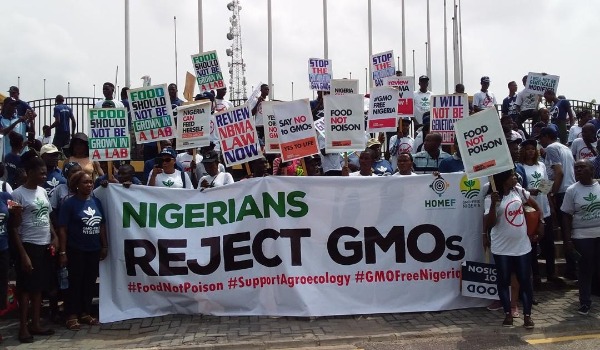Stakeholders in agric space in Nigeria reject GMO crops because of the health risk
Stakeholders in the agricultural sector have insisted that genetic modification food crops are not needed in Nigeria, arguing that the problems with Nigeria’s food production falls outside the purported scope of genetic engineering’s solutions.
The stakeholders, who spoke at the Center for Food Safety and Agricultural Research’s lab said it is crucial to preserve native seed varieties, conduct research on sustainable agricultural methods, support local and indigenous farming communities, promote agroecological farming systems, while educating farmers and other stakeholders in the country.
Crop diseases are on the rise leading to food shortage and major losses for farmers . As such, relevant technologies are needed to adapt and mitigate the changes that may occur.
To curb these challenges, the Federal Government of Nigeria has approved the use of genetically modified organisms in food crops in the country.
The idea has generated controversy as speakers at the event highlighted dangers it might portend and sought caution.
This year, Nigeria is expected to see about 26.5 million people grappling with high levels of food insecurity, as disclosed by the Federal Government and its partners during the unveiling of the October 2023 Cadre Harmonisé analysis on food insecurity.
However, stakeholders say Nigerian farmers can produce enough food with the arable lands in the country.
Nonetheless, stakeholders have urged Nigerians to hold the government accountable and also demand the implementation of the right policies in the agric sector.
The participants encouraged the federal government like their counterparts in other African countries, to out rightly ban genetically modified organisms’ crops because of the risk they represent.



